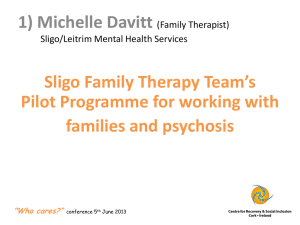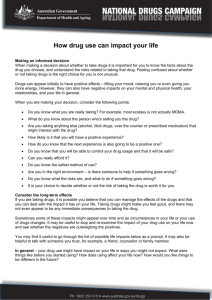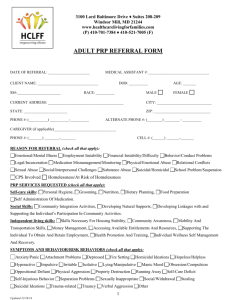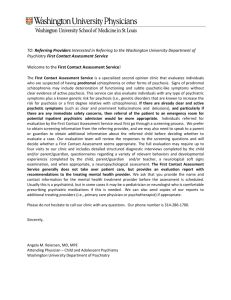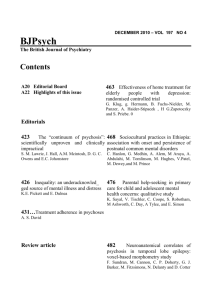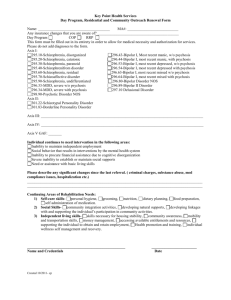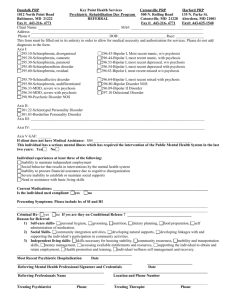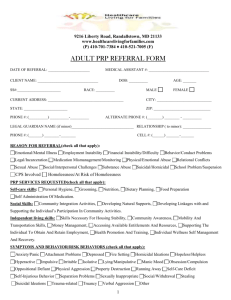Know the Signs & Symptoms of Psychosis
advertisement
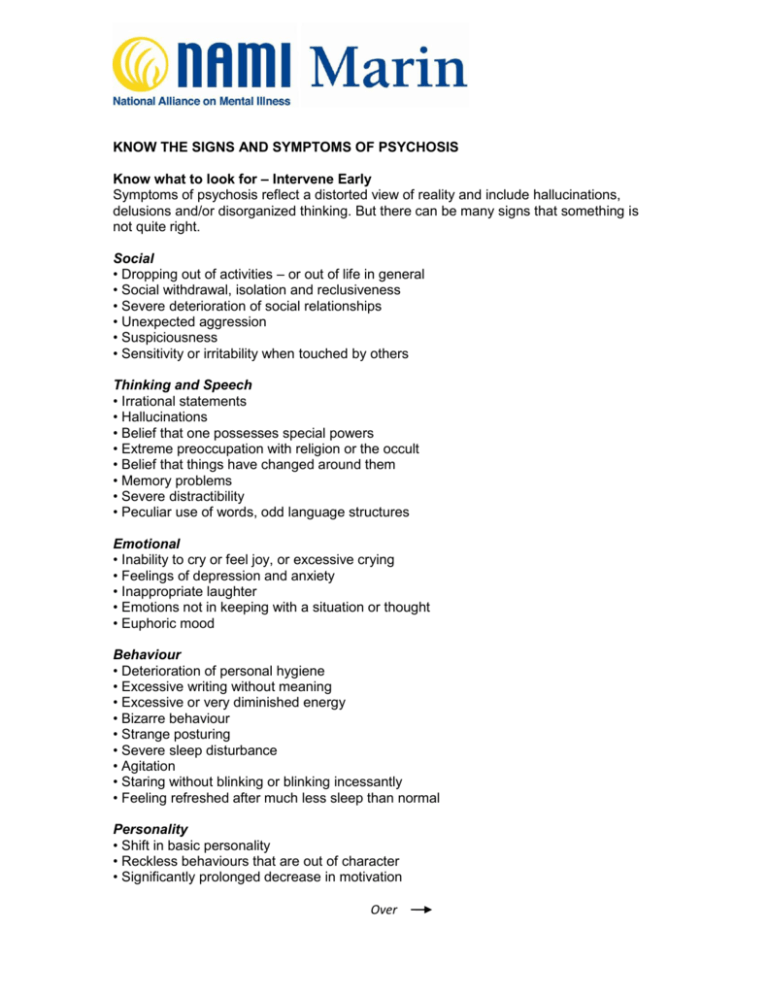
KNOW THE SIGNS AND SYMPTOMS OF PSYCHOSIS Know what to look for – Intervene Early Symptoms of psychosis reflect a distorted view of reality and include hallucinations, delusions and/or disorganized thinking. But there can be many signs that something is not quite right. Social • Dropping out of activities – or out of life in general • Social withdrawal, isolation and reclusiveness • Severe deterioration of social relationships • Unexpected aggression • Suspiciousness • Sensitivity or irritability when touched by others Thinking and Speech • Irrational statements • Hallucinations • Belief that one possesses special powers • Extreme preoccupation with religion or the occult • Belief that things have changed around them • Memory problems • Severe distractibility • Peculiar use of words, odd language structures Emotional • Inability to cry or feel joy, or excessive crying • Feelings of depression and anxiety • Inappropriate laughter • Emotions not in keeping with a situation or thought • Euphoric mood Behaviour • Deterioration of personal hygiene • Excessive writing without meaning • Excessive or very diminished energy • Bizarre behaviour • Strange posturing • Severe sleep disturbance • Agitation • Staring without blinking or blinking incessantly • Feeling refreshed after much less sleep than normal Personality • Shift in basic personality • Reckless behaviours that are out of character • Significantly prolonged decrease in motivation Over These signs may mean many things, particularly when exhibited during adolescence or young adulthood. If they are persistent they may indicate psychosis. A thorough assessment by a medical professional is necessary to determine whether or not psychosis is present. Acknowledgements: Mheccu (Mental Health Evaluation and Community Consultation Unit), University of British Columbia; CMHA National pamphlets, “What is Psychosis?” and “Time is of the Essence…” April 2000. What is psychosis? The word “psychosis” is used to describe conditions which affect the mind, where there has been some loss of contact with reality. When someone becomes ill in this way it is called a psychotic episode. “First-episode” psychosis means that an individual is experiencing psychosis for the first time. Psychosis is associated with a number of medical conditions including schizophrenia, depression, bipolar (manic depressive) disorder and substance abuse. Who can be affected? Psychosis affects males and females in equal numbers and most often begins during adolescence or young adulthood. Psychosis is a challenging condition to face at any point in life and its effects can be particularly disruptive during this important period of development. It can seriously damage a young person’s sense of self, the ability to relate to others and the capacity to create a meaningful and productive future. Can it be treated? Psychosis responds well to treatment, especially when it is caught early. Early identification followed by comprehensive, individualized treatment strategies that incorporate the use of low dose anti-psychotic medications combined with education and psychosocial interventions can promote full recovery from psychosis. Research indicates that the sooner the psychosis is appropriately treated, the better the outcome. The benefits of early intervention can include: • Reduced disruption of activities • Reduced disruption of family and social relationships • Reduced likelihood of hospitalization • Reduced risk of suicide • Faster and more complete recovery Who should I call? • For more information on early psychosis intervention, call: NAMI Marin, 415-444-0480 • For more urgent assessment call: Bruce Gurganus, 415-473-6769 • If there is an emergency or crisis, call: Psychiatric Emergency Services: 415-473-6666 or your local police department and ask for a Crisis Intervention Team (CIT) officer. Psychosis can happen to anyone. Early detection and effective treatment can promote full recovery. NAMI Marin 555 Northgate Drive, Suite 280 San Rafael, CA 94903 415-444-0480 Adapted from the Canadian Mental Health Association, Manitoba Division, March 2001.
